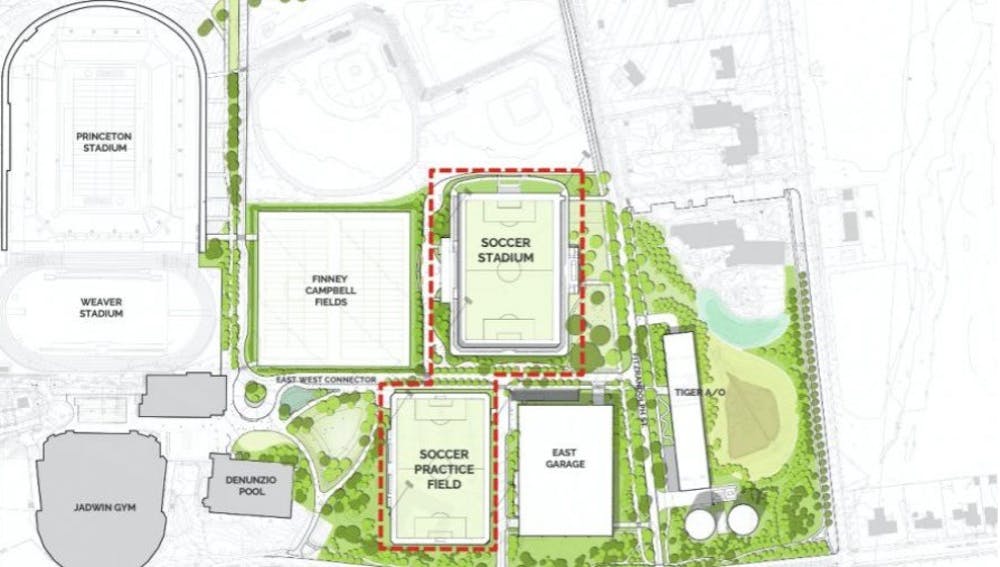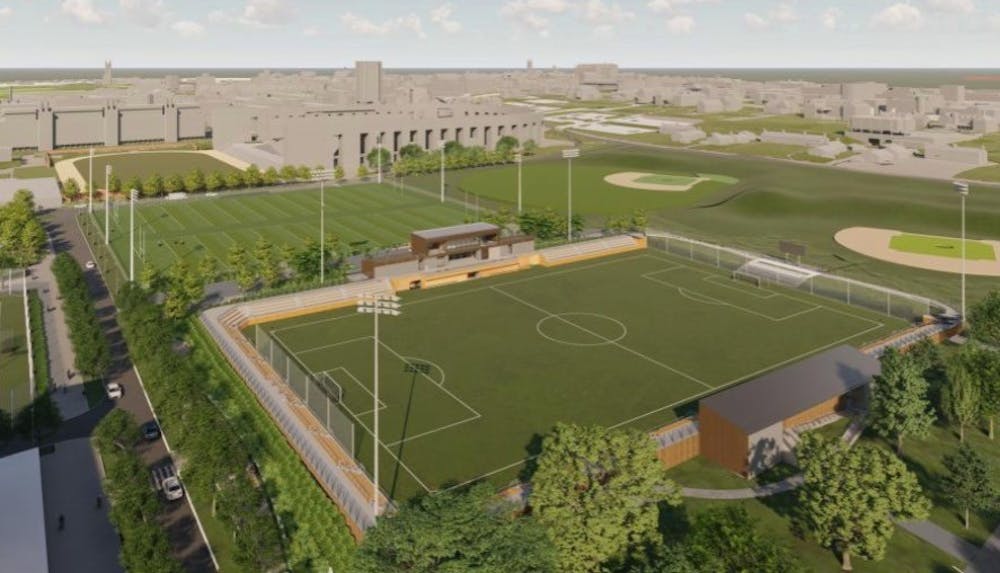On Jan. 7, the Princeton Planning Board gave the University the go-ahead to build a new soccer facility, which will include a new Roberts Stadium and a practice field. The new stadium will seat 2,113, a slight downgrade from the capacity of the existing Roberts Stadium, which seats 2,300.
The new stadium will be built on land most recently occupied by FitzRandolph Observatory, which was constructed in 1934 and primarily used for storage in its final years. Some called for the partial preservation of the observatory, and others for bricks from the observatory to be used for the construction of the new stadium. Despite these pleas, a study conducted by the University concluded that the building was not worth preserving, and it was demolished in September 2020. Some stones have been saved, but it’s unclear whether these will be incorporated into the new structure.
The construction of the new facilities is part of the University’s 2026 Campus Plan, which includes the construction of other eco-friendly structures on the East Campus site. Some of the other projects in the area include the construction of a new five-level parking garage, which will allow for the maintenance of parking capacity in the area since multiple lots will be razed in favor of the soccer stadium and practice field. The garage will feature solar panels and charging outlets for electric vehicles. In addition, there will be a commitment to plant trees near the garage.
Some residents have expressed concerns that the new stadium will cause noise pollution in the area. According to lawyers representing the University for this project, the stadium’s sound system will automatically adjust from 65 decibels to 50 decibels at 10 p.m. to comply with state law. There are also concerns that the new parking structure will increase traffic in the area, but the new structure will only result in a net increase of 176 spaces.
“It’s not really an expansion as much as a reorganization of parking on campus,” said Princeton Municipal Planning Director Michael La Place in a Feb. 6, 2020 interview with The Daily Princetonian.

A look at the planned location of the new soccer facilities and garage. Courtesy of Princeton University Facilities.

As for the athletic facilities themselves, the stadium will have a natural grass surface, while the practice field will have artificial turf. One side of the stadium will feature restrooms and concessions, while the other will house ticketing operations, home and visitor locker rooms, and a second-story press box. The stadium will also feature a new LED stadium lighting system to drastically reduce glare.
According to the facilities department, “the stadium and practice field meet Athletics’ needs and campus goals for accommodating future growth and sustainability by including geo-exchange wells and stormwater management under the facility.”
Beginning on July 28, 2020, construction crews have been executing a series of blasts on the sites to build geo-exchange bores, which are part of a new campus-wide, renewable energy heating system known as TIGER (Thermally Integrated Geo-Exchange Resource). The system is designed to increase sustainability in the new East Campus development and bring the University to carbon neutrality by 2046. In a Planning Board hearing taking place today, the University will propose the construction of a one-story facility to house a portion of the TIGER system, as well as the construction of a new athletics storage building, which would be located across the street from the new garage.
After the bores and stormwater management structures are complete, crews can begin construction on the stadium, which is estimated to be completed in the fall of 2022. The University expects the East Campus development to be fully complete by the end of the decade.









